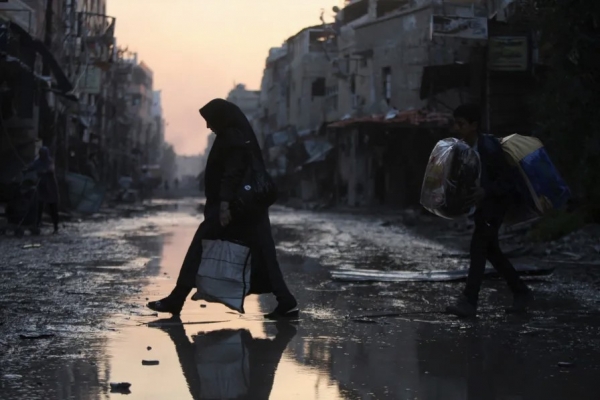1) Guidelines on how to investigate Violations of International Humanitarian Law
Investigations are the first step in the process of establishing the truth and ensuring accountability. This is even more true in the context of serious human rights and humanitarian violations, where investigations are not only fundamental to securing accountability for core international crimes, but they also play a crucial role in preventing future violations and enabling redress for victims of past crimes.
That being said, and despite the unquestionable importance of investigations, professionals working on the field have been complaining about an evident lack of detail as to how to conduct effective and accurate investigations, especially in the context of armed conflicts. The topic is of utmost importance and is totally reflected in the disparate practices observed among States.
With this in mind, and with the aim to identify and present a range of practical and legal issues that can arise while conducting such investigations, the International Committee for the Red Cross, together with the Geneva Academy of International Humanitarian Law and Human Rights have recently published the “Guidelines on Investigating Violations of IHL: Law, Policy, and Good Practice”. The publication constitutes an essential tool for those investigators who find themselves at having to document scenes of war crimes, as it brings much needed clarity on how to record information and collect evidence without losing its probative value.
To know more, please read:
2) Starvation as a tactic of war
Starvation is one of the most horrendous phenomenon that still affect millions of people around the world. In situations of conflict, in particular, famine has always been considered as a deplorable, but yet predictable consequence of war. However, when starvation is the result of the act of deliberately denying food to civilians, it constitutes a serious violation of international humanitarian law and is defined as a war crime under international criminal law.
As starvation has recently re-emerged as a significant feature of modern warfare, lawyers and scholars have started to scrutinize the trend under the eyes of criminal accountability. As observed by Catriona Murdoch, Senior legal consultant at Global Rights Compliance, “it looks very much like [starvation] has been systematically used as a weapon in Syria, Yemen, and South Sudan”. In this respect, Alex de Waal, Executive Director of the World Peace Foundation, explains that “mass starvation is not a natural phenomenon, nor is it a haphazard by-product of war. On the contrary, it is the foreseeable result of intentional actions and should be treated as criminal”.
Then why is prosecuting the crime of starvation so difficult? This is because starvation is defined (and punished) as a war crime only when committed in the context of international armed conflicts. And the problem starts here, as all modern conflicts happen to be non-international in character. So what could be the solution? “We desperately need an amendment to the ICC Rome Statute to enable the crime of starvation to be prosecutable in a non-international armed conflict” states Murdoch.
The amendment has been proposed. In December 2019 we will see whether the amendment passes or not.
To know more, please read:
https://reliefweb.int/sites/reliefweb.int/files/resources/Legal%20Paper%20Starvation.pdf
3) An underground hospital
Targeting medical facilities constitutes a serious violations of international humanitarian law and it is defined as a war crime under international criminal law. Notwithstanding the above, air strikes have been repeatedly targeted hospitals and clinics in the rebel-held province of Idlib, Syria. To survive, medical personnel have been forced to operate underground, in total secret.
This short video, delivered by BBC, shows the tragic reality of Syrian war: a deadly campaign against civilians.Russian and Syrian airstrikes have been precise, deadly and relentless. They have left nothing behind.
As observed by Quentin Sommerville, BBC’s Middle East correspondent, “this is a war against everything that matters to the people of Idlib”. And do you know what the worst part is? That, after eight years, the international community has lost interest in this war.
To know more, please read:







